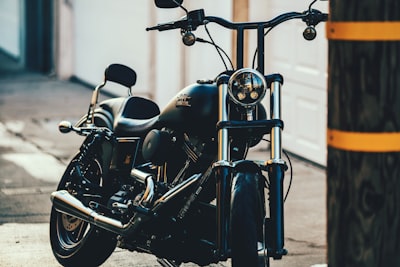There’s nothing better than riding your motorcycle. The wind in your face and the warmth of the sun make this an excellent summertime activity. However, too much of a good thing can be bad for anyone. 
Biking involves operating heavy machinery that requires care, skill and alertness. It also means you expose yourself to the elements in a way that you normally might not in a standard car. Because of these scenarios, you don’t want to ride unless you’re in prime condition to do so.
How do you know when it isn’t safe to ride? When should you stop during motorcycle trips? How can you protect yourself to make riding fun, and not harmful? Let’s help you find some clarity to these questions.
Don’t Ride Unless You Feel Able to Do So
Generally, you should only ride your motorcycle when the conditions are right. This is the case because, as a two-wheeled vehicle, your bike requires more skill to operate than a car. It’s not ideal for certain situations, or drivers. Therefore, if you can’t commit to safe riding, don’t attempt to hit the open road.
- Never ride while under the influence of drugs or alcohol. That's against the law. Don’t consume these items immediately before or during travel. Remember, certain medications - such as prescription painkillers - might cause impairment. Don’t ride until you know how they affect you.
- If you are sick, or have certain injuries, it might not be the best idea to ride. With these ailments, you might not have the best control over your senses. As a result, you might have trouble controlling the motorcycle than you usually do. For example, you shouldn’t try to ride with broken bones. This may pose a risk to your ability to control the bike.
- Chronic medical conditions might inhibit your ability to ride. For example, vision problems might require you to wear goggles with eyeglass lenses while biking.
Protecting Yourself During Bike Trips
Regardless if you have any existing limitations, you have to take care of yourself while you bike. There are always tell-tale signs that you might need to stop and rest for a while.
- Watch out for indicators of dehydration. Exposure to heat and wind might lead to this condition. As a result, you’ll need to stop periodically to replenish your fluids.
- Wear sunscreen and bug spray, as needed, to prevent harmful damage from exposure.
- If you begin to have trouble concentrating, or become tired, don’t keep riding. Exhaustion makes your risk of mistakes and accidents much higher.
- Don’t forget to ride with a helmet and other protective gear. Even if state law doesn’t require it, these items are essential for your safety and protection.
With the right attention to detail, you’ll have relatively little to worry about during your carefree days on the road. Still, don't attempt to ride without making sure you’re right to do so.
Be sure to have the right protection before hitting the road. Contact McInnis Insurance Services, Inc. to learn more about motorcycle insurance.